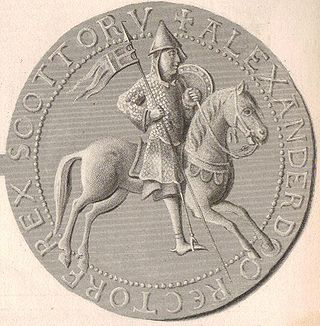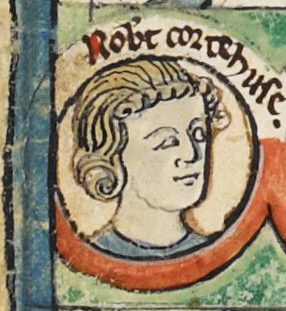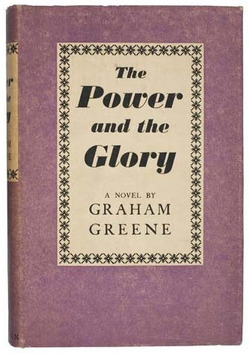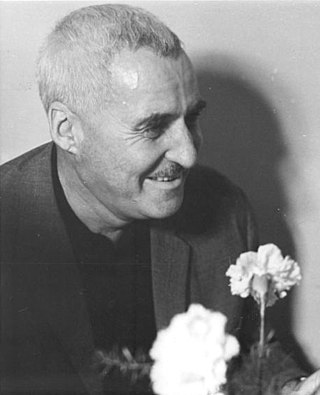Related Research Articles

Alexander I, posthumously nicknamed The Fierce, was the King of Alba (Scotland) from 1107 to his death. He succeeded his brother, King Edgar, and his successor was his brother David. He was married to Sybilla of Normandy, an illegitimate daughter of Henry I of England.

Henry I, also known as Henry Beauclerc, was King of England from 1100 to his death in 1135. He was the fourth son of William the Conqueror and was educated in Latin and the liberal arts. On William's death in 1087, Henry's elder brothers Robert Curthose and William Rufus inherited Normandy and England, respectively, but Henry was left landless. He purchased the County of Cotentin in western Normandy from Robert, but his brothers deposed him in 1091. He gradually rebuilt his power base in the Cotentin and allied himself with William Rufus against Robert.

William II was King of England from 26 September 1087 until his death in 1100, with powers over Normandy and influence in Scotland. He was less successful in extending control into Wales. The third son of William the Conqueror, he is commonly referred to as William Rufus, perhaps because of his ruddy appearance or, more likely, due to having red hair.

Robert Curthose, was the eldest son of William the Conqueror and succeeded his father as Robert II of Normandy in 1087, reigning until 1106.

Lanfranc, OSB was a celebrated Italian jurist who renounced his career to become a Benedictine monk at Bec in Normandy. He served successively as prior of Bec Abbey and abbot of St Stephen's Abbey in Caen, Normandy and then as Archbishop of Canterbury in England, following its conquest by William the Conqueror. He is also variously known as Lanfranc of Pavia, Lanfranc of Bec, and Lanfranc of Canterbury.
Ranulf Flambard was a medieval Norman Bishop of Durham and an influential government minister of King William Rufus of England. Ranulf was the son of a priest of Bayeux, Normandy, and his nickname Flambard means incendiary or torch-bearer, and may have referred to his personality. He started his career under King William I of England, probably in the compilation of the Domesday Book of 1086, as well as being the keeper of the king's seal. On the death of William I, Ranulf chose to serve the new king of England, William Rufus.
Desmond Bagley was an English journalist and novelist known mainly for a series of bestselling thrillers. He and fellow British writers such as Hammond Innes and Alistair MacLean set conventions for the genre: a tough, resourceful, but essentially ordinary hero pitted against villains determined to sow destruction and chaos for their own ends.
The Charter of Liberties, also called the Coronation Charter, or Statutes of the Realm, was a written proclamation by Henry I of England, issued upon his accession to the throne in 1100. It sought to bind the King to certain laws regarding the treatment of nobles, church officials, and individuals. The nineteenth-century historians Frederick Maitland and Frederick Pollock considered it a landmark document in English legal history and a forerunner of Magna Carta.
Richard Thomas Condon was an American political novelist. Though his works were satire, they were generally transformed into thrillers or semi-thrillers in other media, such as cinema. All 26 books were written in distinctive Condon style, which combined a fast pace, outrage, and frequent humor while focusing almost obsessively on monetary greed and political corruption. Condon himself once said: "Every book I've ever written has been about abuse of power. I feel very strongly about that. I'd like people to know how deeply their politicians wrong them." Condon's books were occasionally bestsellers, and a number of his books were made into films; he is primarily remembered for his 1959 The Manchurian Candidate and, many years later, a series of four novels about a family of New York gangsters named Prizzi.

The Power and the Glory is a 1940 novel by British author Graham Greene. The title is an allusion to the doxology often recited at the end of the Lord's Prayer: "For thine is the kingdom, the power, and the glory, forever and ever, amen." It was initially published in the United States under the title The Labyrinthine Ways.

Earl Henry Hamner Jr. was an American television writer and producer, best known for his work in the 1970s and 1980s as the creator of two long-running series, The Waltons and Falcon Crest. As a novelist, he is best known for Spencer's Mountain, which was inspired by his own childhood and formed the basis for both the film of the same name and the television series The Waltons, for which he provided voice-over narration.
Christopher Hovelle Wood was an English screenwriter and novelist, best known for the Confessions series of novels and films which he wrote as Timothy Lea. Under his own name, he adapted two James Bond novels for the screen: The Spy Who Loved Me and Moonraker (1979).

Konstantin Mikhailovich Simonov, born Kirill Mikhailovich Simonov, was a Soviet author, war poet, playwright and wartime correspondent, arguably most famous for his 1941 poem "Wait for Me".

Matilda of Scotland, also known as Good Queen Maud, was Queen of England and Duchess of Normandy as the first wife of King Henry I. She acted as regent of England on several occasions during Henry's absences: in 1104, 1107, 1108, and 1111.
William Hanley was an American playwright, novelist, and scriptwriter, born in Lorain, Ohio. Hanley wrote plays for the theatre, radio and television and published three novels in the 1970s. He was related to the British writers James and Gerald Hanley, and the actress Ellen Hanley was his sister.
William Warelwast was a medieval Norman cleric and Bishop of Exeter in England. Warelwast was a native of Normandy, but little is known about his background before 1087, when he appears as a royal clerk for King William II. Most of his royal service to William was as a diplomatic envoy, as he was heavily involved in the king's dispute with Anselm, the Archbishop of Canterbury, which constituted the English theatre of the Investiture Controversy. He went several times to Rome as an emissary to the papacy on business related to Anselm, one of whose supporters, the medieval chronicler Eadmer, alleged that Warelwast bribed the pope and the papal officials to secure favourable outcomes for King William.
Bruce Alexander Cook was an American journalist and author who also wrote under the pseudonym Bruce Alexander, creating historical novels about a blind 18th-century Englishman and also a 20th-century Mexican-American detective.

Anselm of CanterburyOSB, also called Anselm of Aosta after his birthplace and Anselm of Bec after his monastery, was an Italian Benedictine monk, abbot, philosopher, and theologian of the Catholic Church, who held the office of Archbishop of Canterbury from 1093 to 1109. After his death, he was canonized as a saint; his feast day is 21 April. He was proclaimed a Doctor of the Church by a papal bull of Pope Clement XI in 1720.

Lamentation is a historical mystery novel by British author C. J. Sansom. It is his eighth novel and the sixth entry in the Matthew Shardlake Series, following 2010's Heartstone. Set in the summer of 1546, King Henry VIII is dying while the Catholic and Protestant factions of his court are battling for power over his successor, Prince Edward. Matthew Shardlake is deep in work and still feeling the shock of the events of the previous year when Queen Catherine Parr, caught in the throes of the power struggle, again seeks his aid when a potentially controversial manuscript, Lamentation of a Sinner, is stolen from her chambers.
The crime of Cuenca consisted of a series of judicial miscarriages and police misconduct that involved torture and prison sentences for the defendants, for a crime that never existed. The alleged crime related to the disappearance of a shepherd in the province of Cuenca, Spain, in 1910.
References
- ↑ "Father Anselm (William Brodrick)". www.detecs.org. Retrieved 28 January 2016.
- ↑ "Notes from the underground". The Sydney Morning Herald. 14 April 2012. Retrieved 28 January 2016.